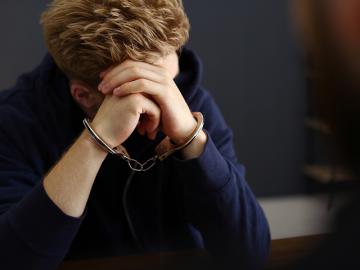“Too often children in criminal proceedings are perceived and treated as young adults, not as children. This goes against the grain of EU and international law which clearly stipulate children’s rights,” says FRA Director Michael O’Flaherty. “EU governments should use this report to identify gaps, potential remedies and existing solutions. This will help ensure that children’s rights are effectively upheld in practice.”
The ‘Safeguards for children in criminal proceedings’ report looks at how national laws and practices protect children who are suspects or accused. It compares this to the provisions set out under EU law and identifies challenges that need addressing:
- Prompt and understandable information: Often national authorities fail to consider a child’s specific needs. Authorities should adapt their individual communications to ensure children understand their rights and what needs doing, taking into consideration language and maturity.
- Privacy: Closed hearings are not common. The media also sometimes reveals details of proceedings in the press. Judges should use more closed hearings especially for serious crimes. The media should also adhere to ethical guidelines when reporting on cases involving children.
- Continuous and effective support: The police sometimes informally question children and obtain confessions without lawyers. Children may also get legal advice in the presence of police, although such consultations should generally be confidential. Some children mentioned police maltreatment, including verbal abuse and sometimes violence. Authorities should ensure that all children have effective legal assistance throughout criminal proceedings, including during police questioning. They should also not underestimate the support family members can provide during the whole process. All alleged cases of misconduct by state agents should be thoroughly investigated and punished.
- Individual assessments: Professionals sometimes individually assess children’s needs either superficially or too late for hearings. Children can also be unaware that they are being assessed. Authorities should always carry out effective and timely assessments and fully involve the children.
- Access to services: Although authorities try not to detain children, detained children do not always have access to appropriate healthcare, education or reintegration programmes. Countries should ensure detained children receive adequate rehabilitation to equip them to return to normal life.
- Mandatory professional training: Although the law requires professionals to be trained in how to work with child defendants, in practice training is often voluntary. Children also spoke of being treated poorly. Countries should ensure all professionals are trained on how best to interact with children, especially migrant children.
The findings provide evidence-based advice to help EU and national policymakers and practitioners assess how EU rules are being applied and where gaps exist.
As one child in Germany told FRA: “I really hope that the next time they really care for someone, no matter where he or she is from or what colour their skin has.”
The research involved interviews with children and professionals in Austria, Belgium, Bulgaria, Germany, Estonia, Italy, Malta, Poland and Portugal.
For more please contact: media@fra.europa.eu / Tel.: +43 1 580 30 653
